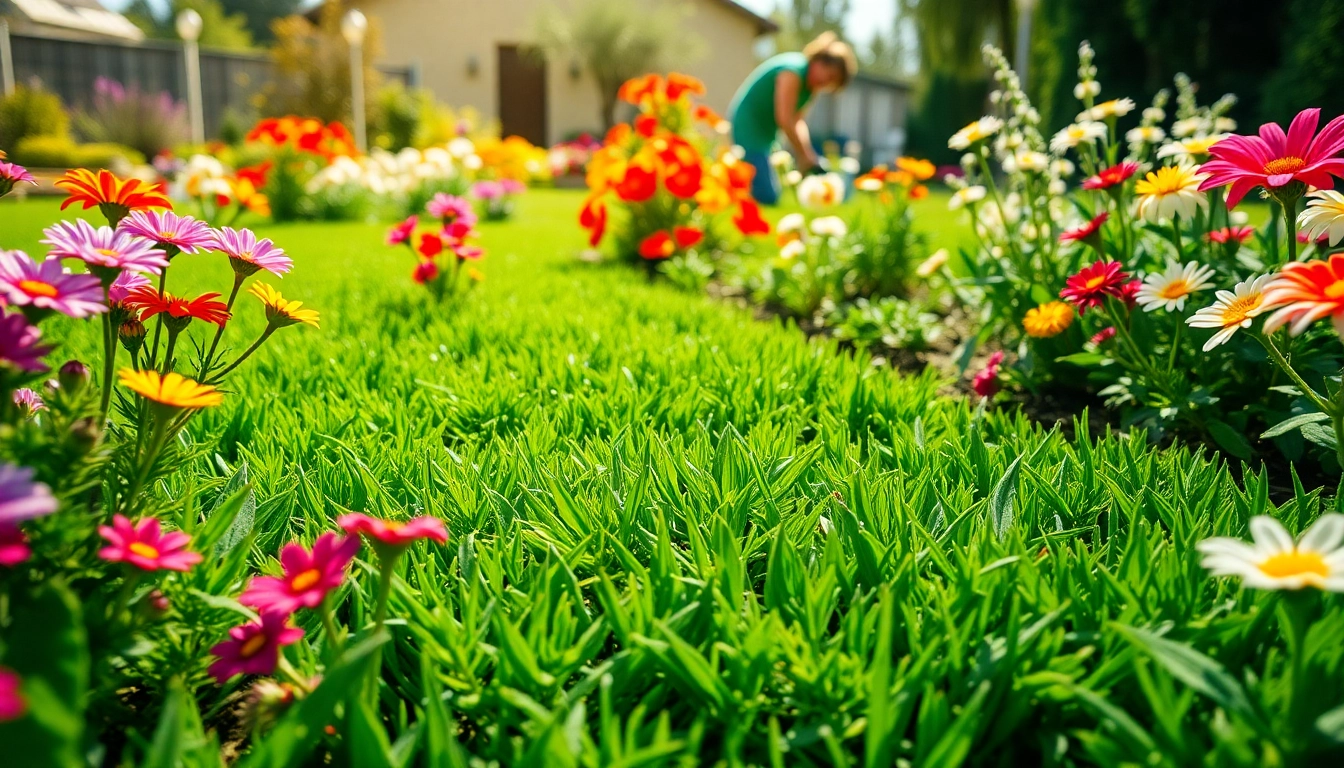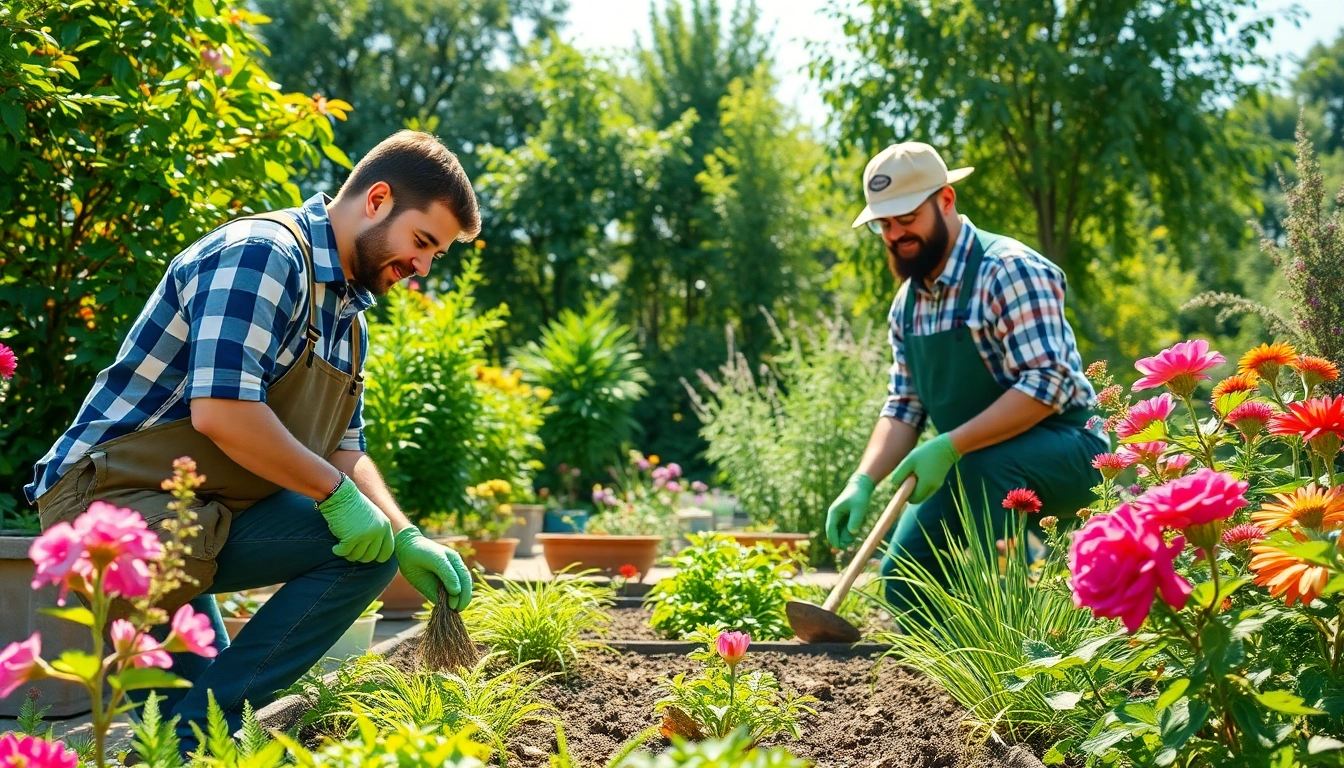Understanding Garden Maintenance Services
When it comes to keeping a garden vibrant and healthy, garden maintenance service plays a pivotal role. The activities involved in garden maintenance not only enhance the visual appeal of a space but also contribute to the health of the plants and other landscaping elements. This section aims to demystify what garden maintenance entails, the types of services offered, and the benefits of regular upkeep.
What is Garden Maintenance?
Garden maintenance encompasses a variety of tasks dedicated to preserving and enhancing the aesthetics and health of garden spaces. These tasks can range from simple acts, like weeding and watering, to more complex activities such as pest control and seasonal clean-ups. The primary goal is to ensure that a garden flourishes all year round.
Maintaining a garden can be categorized into routine tasks that can be performed frequently and seasonal tasks that require expert handling at specific times of the year. Routine tasks ensure that the garden performs optimally, while seasonal jobs adapt the garden to new environmental changes, facilitating smooth transitions from one season to the next.
Types of Services Offered
Garden maintenance services can be broadly categorized into various components:
- Lawn Care: This includes mowing, dethatching, aerating, and fertilizing to maintain a lush, green lawn.
- Plant Care: Services like pruning, deadheading, fertilization, and pest control fall under this category to ensure plant health and growth.
- Irrigation Management: This covers setting up and maintaining irrigation systems, ensuring plants receive adequate water.
- Seasonal Services: Activities such as leaf removal, winterizing plants, and preparing beds for planting in spring.
- Weeding and Pest Control: Regular removal of unwanted plants and management of pests that may damage garden flora.
Benefits of Regular Maintenance
Investing in regular garden maintenance yields numerous benefits:
- Enhanced Aesthetic Appeal: A consistently maintained garden is visually pleasing and can increase property value.
- Improved Plant Health: Regular care prevents diseases and encourages robust growth.
- Time and Cost Efficiency: Scheduled maintenance can prevent larger issues that may require costly repairs later.
- Environmental Support: Healthy gardens provide habitats for wildlife and contribute to biodiversity.
Choosing the Right Garden Maintenance Service
Choosing a garden maintenance service requires careful consideration. Factors such as service offerings, reputation, and cost should influence your decision. Here, we offer guidance on how to make an informed choice.
Factors to Consider
When evaluating garden maintenance services, consider the following:
- Service Range: Ensure they offer the specific services you require, whether it’s lawn care, pest management, or landscaping.
- Experience and Reputation: Look for companies with a solid track record and positive customer reviews.
- Certifications and Insurance: Verification of professional certifications and liability insurance can protect you as a client.
- Fit for Your Schedule: Consider whether the provider can work within your timeframe and availability.
Questions to Ask Providers
Before selecting a service provider, ask potential candidates the following questions:
- What services do you provide?
- Can you provide references from previous clients?
- What methods do you use for pest control and fertilization?
- How do you handle seasonal maintenance changes?
- What is your pricing structure?
How to Compare Quotes Effectively
When you receive quotes from various services, it’s essential to compare them on more than just price:
- Evaluate the services included in each quote.
- Consider the provider’s reputation and experience.
- Check the quality of materials and techniques used.
- Gauge the flexibility in scheduling and service adjustments.
Common Garden Maintenance Tasks Explained
This section delves deeper into the specific tasks commonly involved in garden maintenance, providing insight into their importance and execution.
Seasonal Plant Care and Pruning
Seasonal care involves specific tasks aimed at preparing plants for the upcoming seasons. For instance:
- Spring: Focus on planting new flowers and fertilizing existing plants.
- Summer: Regular watering and deadheading flowers are essential.
- Fall: This is the time for pruning, mulching, and preparing plants for winter.
- Winter: Insulating sensitive plants and clearing debris to prepare for spring.
Proper pruning encourages healthier growth by removing dead or overgrown branches and allows light to penetrate more effectively.
Lawn Care and Fertilization
Lawn maintenance is critical for a well-kept garden. Key practices include:
- Mowing: Regular mowing keeps the grass healthy and encourages thick growth.
- Fertilization: Applying fertilizer replenishes essential nutrients that grass may be lacking.
- Aeration: This involves perforating the soil to allow air, water, and nutrients to penetrate deeper.
Pest Control and Weeding Strategies
Managing pests and weeds is crucial in garden maintenance. Effective strategies include:
- Integrated Pest Management (IPM): This involves using biological control methods to minimize pest populations without chemicals.
- Regular Inspection: Frequently checking for signs of pest activity helps initiate early intervention.
- Weeding: Removing weeds by hand or using mulch to suppress their growth.
DIY vs. Professional Garden Maintenance
Deciding between carrying out garden maintenance tasks yourself or hiring professionals involves weighing the pros and cons of both options. This section will help you make the best choice depending on your circumstances.
Advantages of Hiring Professionals
Choosing a professional garden maintenance service has several notable benefits:
- Expertise: Professionals have specialized knowledge and experience that can lead to better garden health.
- Time-Saving: Outsourcing allows you to focus on other responsibilities while ensuring your garden is well cared for.
- Access to Equipment: Professionals have the necessary tools and equipment to complete tasks efficiently.
When to Go Solo
While professional services offer many benefits, there are occasions when going solo may be advantageous:
- For simple tasks like weeding or watering if you have time and enjoy the activity.
- If you have a limited budget and want to save costs on basic maintenance.
- To gain a better understanding of your plants and garden’s needs.
Tips for Combining Efforts
Combining DIY efforts with professional services can optimize your garden’s upkeep:
- Consider hiring professionals for seasonal clean-ups or major projects while handling routine tasks yourself.
- Educate yourself on best practices for specific tasks through online resources or gardening workshops.
- Communicate with your hired service about their recommendations for when you can take on certain tasks yourself.
Measuring the Success of Your Garden Maintenance Service
Tracking the effectiveness of your garden maintenance service ensures you receive the best results. This section outlines how to gauge performance and satisfaction effectively.
Establishing Performance Metrics
Setting performance metrics helps in evaluating service effectiveness. Consider measuring:
- Plant health indicators, such as leaf color and bloom frequency.
- Lawn density and uniformity.
- Client satisfaction ratings from personal observations or professional assessments.
Client Testimonials and Feedback
Practical feedback, especially from long-term clients, can provide insights that metrics alone may not reveal. Encourage open communication and seek reviews regularly.
Adjusting Services Based on Results
If performance isn’t meeting expectations, consider adjusting the following:
- Service frequency: More regular visits may be necessary during peak growth periods.
- Specific treatments: Discuss changing fertilizers or pest control strategies based on observed results.
- Feedback Integration: Use client feedback to guide adjustments, ensuring they fit the gardener’s vision and needs.



